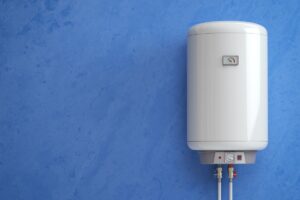How to Find a Balance Between Boiler Efficiency and Affordability
When it comes to heating your home or business, finding the right balance between boiler efficiency and affordability is crucial. A well-functioning boiler not only keeps you warm but also saves you money on energy bills. In this comprehensive guide, we will explore strategies and expert insights on how to achieve the perfect equilibrium between boiler efficiency and affordability. From optimizing your existing system to making informed purchasing decisions, we’ve got you covered.

1. Understand the True Cost of a Boiler
It’s not just the initial price tag you should be looking at. A boiler’s lifetime cost is a combination of its purchase price, installation, maintenance, potential boiler moving costs, and energy expenses. By evaluating a boiler based on its overall lifetime costs rather than just the upfront price, you can get a clearer picture of its true affordability.
2. Assessing Your Current Boiler System
Understanding your existing boiler setup is the first step in finding the right balance. Here’s what you need to consider:
Boiler Age and Condition
- Evaluating the age and overall condition of your boiler is essential.
- Older boilers may be less efficient and more prone to breakdowns.
- Regular maintenance can extend the lifespan of your boiler.
Energy Efficiency Rating
- Check the energy efficiency rating (AFUE) of your boiler.
- High-efficiency boilers can significantly reduce your energy consumption.
- Upgrading to a more efficient model may be cost-effective in the long run.
3. Prioritize Efficiency Ratings
Modern boilers come with an efficiency rating that gives you an idea of how well they convert fuel into heat. A higher efficiency rating means that the boiler uses less fuel to produce the same amount of heat. Over time, this can result in significant savings on your energy bills. It’s worth investing a bit more initially for a boiler with a high-efficiency rating, as this will often prove to be more affordable in the long run.
4. Regular Maintenance and Servicing
Maintaining your boiler system is key to ensuring both efficiency and affordability. Here’s why:
Cleaning and Inspections
- Regularly clean and inspect your boiler to remove dirt and debris.
- Clogged or dirty components can reduce efficiency and increase costs.
- Schedule annual professional servicing to address any issues.
Efficient Combustion
- Ensure proper combustion by adjusting air-to-fuel ratios.
- Optimal combustion reduces fuel waste and lowers expenses.
- A professional technician can fine-tune your boiler for efficiency.
The efficiency of a boiler can decline over time if not properly maintained. A neglected boiler is more likely to break down, need costly repairs, or operate inefficiently, leading to higher energy bills. By scheduling regular check-ups, you ensure that your boiler runs at peak efficiency prolongs its lifespan, and avoids unexpected expenses.
5. Boiler Replacement Considerations
If your boiler is beyond repair or inefficient, replacing it is a substantial investment. Here’s what to think about:
Sizing and Type
- Choose the right-sized boiler for your space and heating needs.
- Consider the type of boiler (combi, system, or regular).
- Seek professional guidance to make an informed choice.
Energy Source
- Decide between gas, oil, electric, or renewable energy sources.
- Factor in fuel availability and environmental considerations.
- Evaluate long-term costs and benefits.
6. Opt for a Condensing Boiler
In areas such as the UK, condensing boilers are a popular choice due to their enhanced efficiency. These boilers capture and utilise the heat from exhaust gases, which would otherwise be wasted. Though they might be slightly more expensive up front, their increased efficiency can lead to substantial savings over the boiler’s lifespan.
7. Consider the Warranty and After-Sales Support
A long warranty is often a sign of a manufacturer’s confidence in their product. A boiler with a good warranty can save you money on potential repairs or replacements. Additionally, reliable after-sales support can provide peace of mind and further reduce unexpected costs in the event of any issues.
8. Look for Grants and Incentives
Some governments and various organizations offer grants and incentives for homeowners who install energy-efficient boilers. These schemes can significantly reduce the overall cost of purchasing and installing a new boiler. Research these opportunities and take advantage of any that apply to you.
9. Think Long-Term
It’s easy to be swayed by a low upfront cost, but remember that a boiler is a long-term investment. A cheap boiler might seem attractive now, but if it’s inefficient or unreliable, it could cost you more in the long run. Instead of looking for the cheapest option, look for the best value – a boiler that offers a balance between efficiency, reliability, and price.
10. Get Multiple Quotes
Before making a decision, it’s wise to get quotes from several suppliers and installers. This will give you a broad perspective on pricing and allow you to make an informed choice. Remember to compare not just the price, but also the efficiency, warranty, and any additional services or perks that are included.
11. Insulation and Draught-Proofing
Efficient insulation and draught-proofing can make a significant difference:
Insulation Upgrades
- Insulate your walls, roof, and floors to retain heat.
- Well-insulated spaces require less heating, reducing costs.
- Government incentives may be available for insulation projects.
Draught-Proofing
- Seal gaps and cracks in doors, windows, and walls.
- Prevent heat loss and improve overall comfort.
- Combine with insulation for maximum impact.

Frequently Asked Questions (FAQs)
Q: How often should I service my boiler?
A: It’s advisable to schedule annual professional servicing for your boiler to ensure optimal performance.
Q: Are government incentives available for insulation projects?
A: Yes, many governments offer incentives and grants for improving home insulation to promote energy efficiency.
Q: Is renewable energy a cost-effective option for heating?
A: Renewable energy sources can be cost-effective in the long run, depending on your location and access to resources.
Q: How do I determine the right-sized boiler for my space?
A: Consulting with a professional heating technician is essential to accurately size your boiler based on your heating needs.
Q: What are the benefits of switching to a high-efficiency boiler?
A: High-efficiency boiler systems can significantly reduce energy consumption, leading to lower utility bills and a smaller carbon footprint.
Conclusion
Balancing boiler efficiency with affordability doesn’t mean compromising on quality. By understanding the lifetime costs of a boiler, prioritizing efficiency, and taking advantage of grants and incentives, you can make an informed decision that benefits both your wallet and the environment. With a bit of research and foresight, you can enjoy the comfort of a warm home and savings simultaneously.
